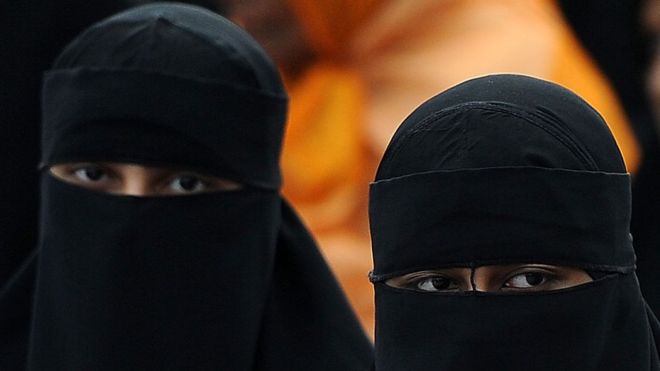
Sri Lanka has banned face coverings in public, following a spate of suicide attacks on Easter Sunday that killed at least 250 people and injured hundreds.
President Maithruipala Sisirsena said he was using an emergency law to impose the restriction from Monday.
Any face garment which “hinders identification” will be banned to ensure national security, his office said.
The niqab and burka – worn by Muslim women – were not specifically named.
The move is perceived as targeting the garments, however.
Sri Lanka remains on high alert eight days after Islamist attacks that hit churches and hotels.
Dozens of suspects have been arrested, but local officials warned that more militants remained at large.
How many people are affected?
Sri Lanka has a sizeable and centuries-old Muslim population – out of 21 million, just under 10% are Muslim.
Only a small number of women are thought to wear the face-covering niqab, or the burka – a one-piece veil that covers the face and body.
Last week a Sri Lankan MP had proposed a ban on women wearing the burqa, saying it should be outlawed on security grounds.
According to news outlet India Today, the All Ceylon Jamiyyathul Ulama, an organisation of Muslim clerics in Sri Lanka, had also asked women to avoid wearing face coverings.
Source: BBC

